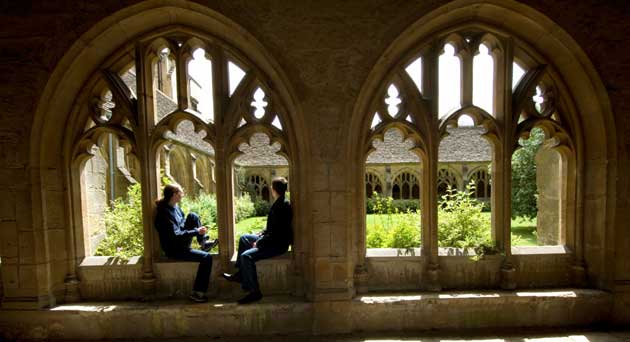University fees 'have not affected' student demand
The introduction of top-up fees has had no effect on demand for student places, according to research published today

Your support helps us to tell the story
From reproductive rights to climate change to Big Tech, The Independent is on the ground when the story is developing. Whether it's investigating the financials of Elon Musk's pro-Trump PAC or producing our latest documentary, 'The A Word', which shines a light on the American women fighting for reproductive rights, we know how important it is to parse out the facts from the messaging.
At such a critical moment in US history, we need reporters on the ground. Your donation allows us to keep sending journalists to speak to both sides of the story.
The Independent is trusted by Americans across the entire political spectrum. And unlike many other quality news outlets, we choose not to lock Americans out of our reporting and analysis with paywalls. We believe quality journalism should be available to everyone, paid for by those who can afford it.
Your support makes all the difference.Figures for recruitment this year show a 9 per cent rise in the number of students seeking to go to university this autumn – bringing the percentage of 17-year-olds opting to go to university to 47.1 per cent.
However, they also show there is little change in the profile of the university population – despite millions of pounds being spent by ministers on attempts to widen participation amongst disadvantaged groups.
In addition, universities were spending less than expected on bursaries to help the less well-off , largely because some students did not realise they were entitled to them.
The findings of the research, conducted for Universities UK – the body which represents vice-chancellors – are bound to lead to pressure for an increase in the top-up fee level from its present rate of £3,000 when ministers review the higher education funding next year.
Sir Richard Sykes, former rector of Imperial College, London, has called for universities to be able to charge full-cost fees of £15,000 a year for some of their most popular courses. Several members of the Russell Group, which represents the 20 top higher education research institutions in the UK, want the cap lifted – and universities to be free to charge what they want.
However, most academics believe the Government will limit any increase to around £5,000 a year – which is seen as the maximum fee that would be politically acceptable.
Today's report concludes: "There is nothing in the available data that indicates that the introduction of variable fees in England has yet had any lasting impact on the level or pattern of demand for full-time undergraduate education."
Figures have risen for the past two years after a "blip" in 2004-05 when they fell by 4 per cent – largely as a result of students forgoing gap years to escape top-up fees. A breakdown of applications shows a "modest increase" in applicants of black African origin and a reduced Asian intake.
"The only significant increase (and it is only minor) is an increase in the percentage coming from semi-routine occupations (for example, shop assistants, hairdressers, bus drivers, cooks)," it adds. The percentage from the lowest socio-economic group has risen by just 0.4 percentage points to 5.9 per cent in the past four years.
Sally Hunt, general secretary of the University and College Union, warned against using the report to boast that the introduction of top-up fees had been a success. "Whilst it is encouraging that student numbers have not decreased in our universities, it is extremely worrying that there has been no change in the number of students from the very backgrounds the Government is spending considerable sums of money on persuading to apply," she said. "We remain unconvinced that asking students to pay more for a university education is the best way to encourage those from poorer backgrounds to apply." But Diana Warwick, chief executive of Universities UK, said: "It's encouraging to see from this report that demand for higher education remains solid."
*This year's A-level results will show an increase in the number of candidates taking maths. The results, out on Thursday, will show a rise of between 5 and 10 per cent in those taking maths and 15 per cent in further maths. The rise follows changes to the syllabus after it was claimed it was too difficult and was deterring potential candidates.
Subscribe to Independent Premium to bookmark this article
Want to bookmark your favourite articles and stories to read or reference later? Start your Independent Premium subscription today.
Join our commenting forum
Join thought-provoking conversations, follow other Independent readers and see their replies
Comments